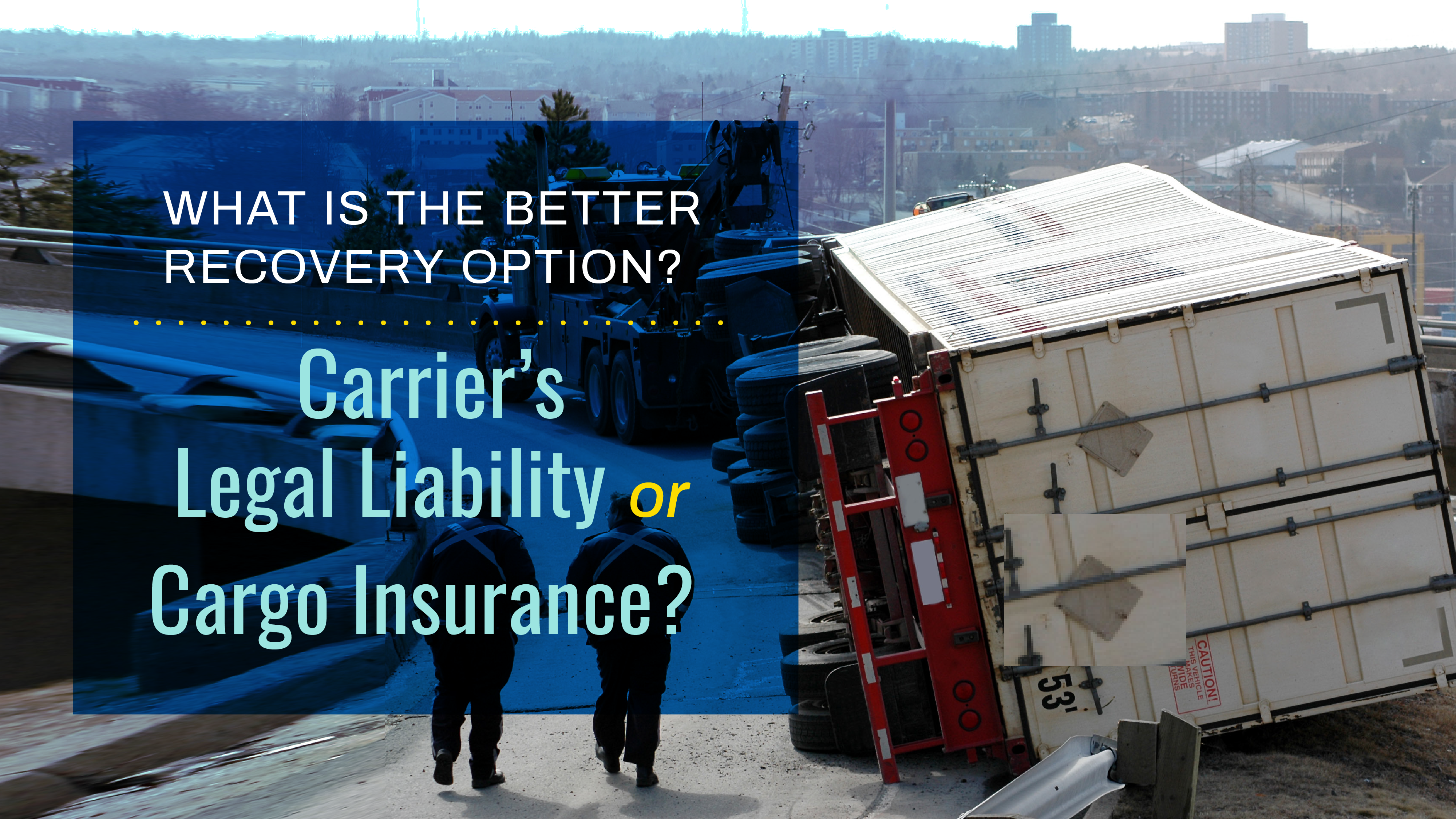What is the better recovery option -Carrier’s Legal Liability or Cargo Insurance?
by Robert L Reeb
Shippers must understand the differences in recovery options and choose the best and most cost-effective method to safeguard their financial interests. Property brokers and forwarders can assist customers by providing insightful guidance on these commonly misunderstood options.
Rules of the Road – Interstate Shipments
Since 1906, the Carmack Amendment to the Interstate Commerce Act has provided a federal scheme of carrier liability for actual loss and damage to goods during interstate ground transportation. 49 U.S.C.A. § 14706.
To recover under the Carmack Amendment, the shipper must demonstrate the following:
(1) delivery of the goods to the carrier in good condition;
(2) receipt by the consignee of damaged or lost goods; and
(3) the amount of damage.
If the shipper establishes these three elements, there is a rebuttable presumption of negligence against the carrier. To overcome this presumption, a carrier must show that it was free of negligence and that the damage was due to a) the inherent nature of the goods, or b) attributable to an act of God, public enemy, the shipper or public authority.
Under this standard, the carrier is usually strictly liable for the loss, as these very limited defenses are hard to prove. However, that does not mean the shipper will recover full value. Under Carmack, the carrier is allowed to limit its liability to far less than full value – often to $.50 per pound.
Other Considerations – Contracts, Declared Value and State Law
- A carrier has the option to limit its liability through a direct service contract with the shipper, or through the terms of its bill of lading and applicable tariff.
- To avoid limitation of liability, a shipper must declare a value for the cargo on the bill of lading and pay a higher freight rate (Ad Valorem rate).
- Declaring a value and paying an Ad Valorem freight rate will be significantly more expensive than purchasing cargo insurance for the goods.
- Declaring a value does not increase the carrier’s scope of liability. The carrier may still raise all defenses it may have to liability. Declaring a value simply allows a higher recovery if the shipper prevails in its Carmack claim.
- Where a large value is declared, the Carrier and its insurer will exhaust every legal defense available to them in lieu of paying a full value claim.
- Varying state laws will apply to a shipment that is solely intrastate – Carmack does
not apply.
Cargo Insurance (Shippers Interest)
In the simplest terms, cargo insurance (also referred to as shipper’s interest) covers the cargo owner against loss to their property while in transit on an all-risk basis. It covers against physical loss or damage from external causes from perils such as theft, damage and natural disasters like floods and hurricanes (subject to policy terms and conditions).
Cargo insurance is a broad form of property coverage designed to protect the cargo owner’s financial interest and is usually available as a value-add from the freight forwarder, property broker or directly from an insurance provider.
The cost of insuring goods under a cargo policy will normally be substantially less expensive than seeking to declare a value for your cargo with a carrier, which will result in a higher freight charge. Carriers are not in the business of selling insurance on the cargo, and so will be a much more expensive option. Cargo insurance is also a better option because it provides broader protection than declaring a value with a carrier.
Also, when there is a loss, the insurance company pays the claim directly to cargo owner and then seeks recovery from the responsible carrier. Thus, eliminating the need to chase down the motor carrier for payment of claim.
The chart below offers a quick look at the difference between legal liability including declared value and cargo insurance:

When evaluating the options selecting cargo insurance provides the cargo owner with the greatest likelihood of receiving recovery for loss or damage to their shipment. It may take extra effort on your part to guide the cargo owner to this decision, but ultimately, ensuring their satisfaction is advantageous.
Disclaimer: This information is provided as a public service and for discussion of the subject in general. It is not to be construed as legal advice. Readers are urged to seek professional guidance from appropriate parties on all matters mentioned herein.
About the Authors:
Robert (Rob) L. Reeb is a civil trial lawyer with Marwedel, Minichello & Reeb, P.C. and is experienced in maritime and transportation law, including intermodal cargo losses; personal injury defense for cases involving property brokers, transportation intermediaries, and equipment owners in major trucking accidents, pleasure boating, the Jones Act, transportation intermediaries (freight forwarders, NVOCCs and customs brokers); industrial equipment transportation; marine and inland marine insurance.


